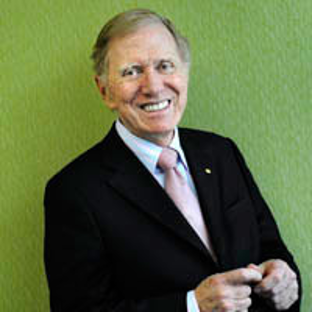Three faces of discrimination: Jews, Gays and Koreans
When he retired from the High Court of Australia in 2009, Michael Kirby was Australia's longest serving judge. Since his retirement, he has been increasingly involved in activities of the United Nations. Many of these have resonated with deeply felt concerns that arise out of his own life. His work for WHO, UNDP and UNAIDS has involved him in the global issues of discrimination affecting people on every continent living with HIV, and especially inequality and hostility affecting people because of their sexual orientation and gender identity. His work for the Office of the High Commissioner for Human Rights has involved him in exploring issues of genocide, crimes against humanity and other terrible wrongs, particularly in Cambodia and North Korea. Those who have felt discrimination, tend to be sensitive to its injustice and insistent on equality, mutual respect and antidiscrimination. These were big themes in the life of Walter Lippmann. They have been big themes in the life of Michael Kirby.
In this Walter Lippmann lecture for 2015, Michael Kirby will search for common threads in relation to shocking forms of discrimination that have featured in his life. First, the discrimination against Jews that was a feature of Nazi rule in Europe in the 1930s-40s, and was felt by Walter Lippmann when he was growing up. Then, he’ll review the form of discrimination that he felt in his own life: against minorities by reason of their sexual orientation and gender identity. Finally, he will describe the terrible crimes against humanity and discrimination against suspect minorities in North Korea, revealed in the report of the UN Commission of Inquiry on North Korea which he chaired: on the basis of gender, political classification, religious conviction and ethnicity. He’ll draw common features and practical lessons from these three case studies.
Featuring

Michael Kirby
Michael Kirby is one of Australia’s most admired public figures. When he retired from the High Court of Australia in February 2009, Kirby was Australia’s longest serving judge.
In addition to his judicial duties, he has served on many national and international bodies, including the World Health Organisation’s Global Commission on AIDS, the International Commission of Jurists, the UNESCO International Bioethics Committee, the UNAIDS Reference Group on HIV and Human Rights, and the UNDP Global Commission on HIV and the Law.
Kirby’s book, A Private Life, is a very personal memoir in which he reflects on his early life, about being gay, about his 42-year relationship with Johan van Vloten, about his religious beliefs and even about his youthful infatuation with James Dean. The biography of Michael Kirby, written by Daryl Dellora, is called Michael Kirby: Law, Love and Life.
Eddie Micallef
Eddie Micallef is currently the Chairperson of Ethnic Communities’ Council of Victoria (ECCV), the peak policy and advocacy body representing diverse multicultural communities in Victoria.
Prior to serving as Chair of ECCV, Mr Micallef served for two years as the Chairperson of ECCV’s Drugs Task Force and Convenor of the ECCV’s Health Policy Sub-committee.
He served in the Victorian Parliament from March 1983 to September 1999, during which time he held numerous responsibilities covering Health, Industrial Relations, Work Cover and Multicultural Affairs.
Mr Micallef has a background in Occupational Health, with more than 30 years’ experience in Community Health, where he supported policy and programs enabling culturally diverse communities to respond to the drug and alcohol challenge. He is currently a Director at Inner South Community Health Service.
